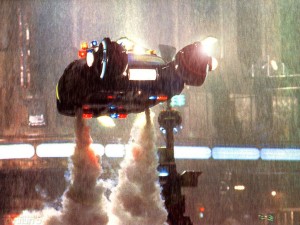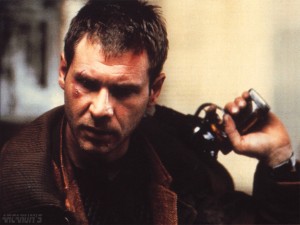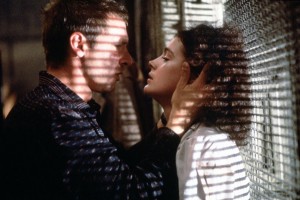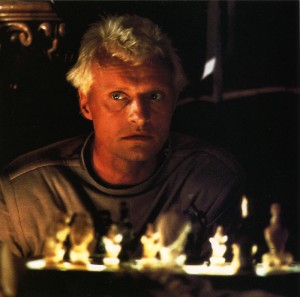Hi all! Welcome back to ‘I Need To See That’, where I watch a classic movie that I really should have seen by now, talk about its reputation and my impressions of it, and finally decide if it really ‘needs’ to be seen or not. I want to thank all of you for sticking around while I work out the best ways to tackle this column.
I’d like to let you guys into my thought process into writing these sorts of things, so before we begin talking movies I’ll tell you a couple of concerns I’m having with the column. I’m wondering if I sound pretentious when I come to my conclusion about how vital I feel a film is, or how important I found it, or however you’d like to term a film’s ‘Need To Be Seen’ness. I don’t want anybody reading this to feel like my conclusion is a be-all and end-all, and if I dismiss a film that you feel merits inclusion in any sort of canon, please tell me that I’m a dumbass who missed out all the obvious thematic and technical qualities of something that a real film buff would have seen years ago. Seriously, half of the reason I wanted to write this column was for conversation, and I’ve had some really interesting ones so far. Chime in if you think I’m full of shit, or if I’ve pointed out something you haven’t considered before.
Another thing I’ve been thinking about is the tone I should be striking with these pieces, how formal or casual I should be aiming for. I tend to slip in and out of dryness, like a professor who throws in a ‘motherfucker’ every so often just to keep things interesting. If you guys have any thoughts about how you’d like these columns presented in the future, please leave a comment. I aim to please!
This is one I’ve been meaning to get to for a long, long time.
BLADE RUNNER (dir. Ridley Scott, 1982)
The Reputation
Despite a general ‘meh’ from the American box office, mixed reviews and limited awards season attention, since its release Blade Runner has accumulated massive respect among the sci-fi community and from the cinematic community as a whole. Various panels of nerds have voted it the best science fiction film of all time, and the visual style and effects used in the film have been namechecked as a direct influence for a huge number of films, video games, anime and manga over the years, with the creators of Battlestar Galactica (the good one, not the eighties one) and Ghost In The Shell as well as video game Deus Ex all specifically citing Blade Runner as a direct inspiration for their worlds.
The film has either made an appearance on or topped a variety of Best Of lists, including hovering around the high 60s on both the director’s and critic’s Sight and Sound 2012 lists (the directors liked it a little better), several AFI lists and more best sci-fi lists than I can really include here. It’s also the film that raised Phillip K Dick to prominence, so if you’re into Minority Report, Total Recall (the good one), A Scanner Darkly, Paycheck, The Adjustment Bureau…then you’d probably be better off watching Blade Runner anyway, it’s better than all of those. Except Total Recall. (Ed. very big call, Switzky)
In short, it’s well-regarded by the usual suspects of film criticism and curatorship, more well-regarded by the sci-fi gang, and has also been an influence on pretty much every single science fiction text since its release. It is, visually speaking at least, a Big Deal. Patron saint of smart-ass film critics, Pauline Kael, said that Blade Runner “has its own look, and a visionary sci-fi movie that has its own look can’t be ignored – it has its place in film history.”
My Impressions
(Note: There are several different versions of Blade Runner. The version I saw, The Final Cut, is the most recent edit (2007) and typically regarded as the definitive version of the film. After a little research I’ve determined that the various cuts of the film are similar enough that I am confident in using this edit as a representation of the film as a whole. If you disagree, feel free to let me know in the comments.)
Umm. Whoa. Okay. I am honestly not sure where to start with Blade Runner. If I had to pick one word to describe it right after seeing it, I would use ‘dense.’ It shows you this incredibly rich, textured world, layers in some legitimately complex thematics and an opaque plot, and then it doesn’t tell you anything. That takes some balls.
I’m not quite ready to discuss the plot or the deeper themes of Blade Runner, so I might try to start with the visuals and tangible details of the thing and work my way inward. First of all, the reputation Blade Runner has as a visual piece is more than justified. It’s only occasionally pretty, but it is always very richly textured. The streets of Los Angeles are packed to the gills with detail and grime. During the film I kept picturing the army of production designers and set dressers that would need to descend on the set each day. This is setting aside the effects, such as the flying cars and the shots of the Tyrell Corporation, which look just as convincing as the best of ILM’s work on Star Wars but are put into a much more complex context. And all without computers! This is setting aside the lighting, which I honestly don’t have the vocabulary to talk about. If I tried, there’d just be a splattering of word salad on your screen with something about ‘unconventional yellowish colour pallet’ and ‘unique and almost constant use of darkness’ as the only legible part.
It seems a little disingenuous to attempt to speak in detail about any of the more abstract elements of Blade Runner. The unicorn, a seemingly non-sequitur five second scene, has kept my mind whirring for the better part of a week. I will say that I found it remarkable that a single film managed to cram so many concepts into a two hour running time. Blade Runner touches on what it means to be human, technological development, limited life-spans, brand ubiquity, the racial layout of the future, genetic modification…but it never feels the need to stop the movie to do so. There’s never a scene where characters sit around and philosophize, but it never descends into Tree of Life style obscurity either. It’s a very fine line to walk, or blade to run as it were. For comparison, the recent smart sci-fi darling Looper, as great as it was, didn’t approach its conceits with nearly the level of confidence in the audience that Blade Runner has. Looper executed its exposition well and knew when to disregard the complexities for the sake of the story, but Blade Runner is truly on another level. Andrew Sarris wrote about Welles’ and Renoir’s use of deep focus taking films into the realm of the novel as far as open interpretation, but after seeing both Citizen Kane and Blade Runner I would say the latter is much closer to a novel in terms of its depth and opportunity for interpretation.
You may have noticed that I’m not discussing what one would typically explore during a review of a film, i.e. the story and characters. This leads me to a tricky problem, one that I think I will encounter more often while doing this column. In short, as impressive as I found Blade Runner, I didn’t actually like it all that much. I found it slow, and the opacity, as laudable as it is for a large budget mainstream film to attempt, frustrated me at times. Deckard, Harrison Ford’s character, was well-portrayed but I didn’t find him to be a terribly consistent or stimulating protagonist, although I enjoyed his relationship with Rachael. This doesn’t really matter all that much in the grand scheme of things, and using my own tastes and evaluation of worth isn’t the best way to take away what one could from this film, or any film for that matter. Film Crit Hulk, a writer that all of you should read, urges that the discussion of film moves away from personal quality judgements and towards evaluating if a film’s elements all ‘work,’ and I would definitely argue that, personal taste aside, almost everything in Blade Runner works just fine.
There is so much more I could talk about from my initial impressions alone. Rutger Hauer’s performance, how the technology is handled, the ending, how weird so much of the movie is…This would just be fumbling in the dark. Blade Runner’s such a layered text that books have been written on its symbols, and at a certain juncture my initial impressions just won’t be useful for you to read, or for me to write. It is this gritty, visually stunning and complicated film, a film that you can really, really sink your teeth into and most importantly a film that makes you think in a way that the mainstream has struggled with for decades.
Do You Need To See It?
Absolutely. Blade Runner’s a masterpiece of world-building from a visual perspective, and the deft touch that it uses to layer in its themes is not like anything I’ve seen before outside of the occasional HBO show, and Blade Runner executes the same level of complexity in a fifth of the runtime usually afforded to The Wire or similar shows. Be warned that it’s complex in every sense of the word, and if you approach it expecting your standard science fiction three act tentpole film you may be disappointed or confounded. Watch it for the world, for the questions it poses and for the answers it quietly asks you to develop.
Please leave any suggestions for future films in the comments. The list I have is getting pretty long, so what I might try next time is to post the entire list at the end of the column and have you guys vote from there! In the meantime, thanks for reading and please leave a comment.



